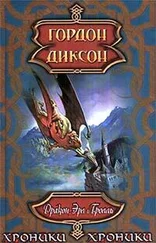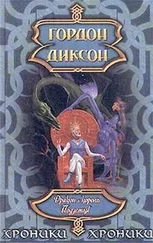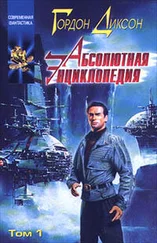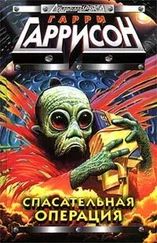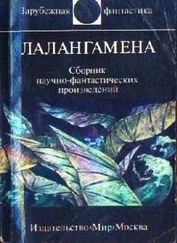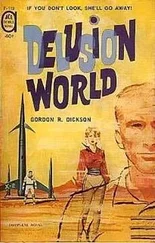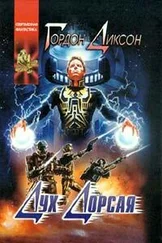Гордон Диксон - Soldier, Ask Not
Здесь есть возможность читать онлайн «Гордон Диксон - Soldier, Ask Not» весь текст электронной книги совершенно бесплатно (целиком полную версию без сокращений). В некоторых случаях можно слушать аудио, скачать через торрент в формате fb2 и присутствует краткое содержание. Год выпуска: 1983, ISBN: 1983, Жанр: Фантастика и фэнтези, на английском языке. Описание произведения, (предисловие) а так же отзывы посетителей доступны на портале библиотеки ЛибКат.
- Название:Soldier, Ask Not
- Автор:
- Жанр:
- Год:1983
- ISBN:0812504003
- Рейтинг книги:3 / 5. Голосов: 1
-
Избранное:Добавить в избранное
- Отзывы:
-
Ваша оценка:
- 60
- 1
- 2
- 3
- 4
- 5
Soldier, Ask Not: краткое содержание, описание и аннотация
Предлагаем к чтению аннотацию, описание, краткое содержание или предисловие (зависит от того, что написал сам автор книги «Soldier, Ask Not»). Если вы не нашли необходимую информацию о книге — напишите в комментариях, мы постараемся отыскать её.
On the sixteen colonized worlds, mankind had changed: men of War on the Dorsai worlds, men of Faith on the Friendly worlds.
Jamethon Black, a Friendly, is a true soldier, and a true man of faith. Now he must face a deadly enemy—an enemy whose defeat will forever separate him from the only woman he has ever loved.
Soldier, Ask Not — читать онлайн бесплатно полную книгу (весь текст) целиком
Ниже представлен текст книги, разбитый по страницам. Система сохранения места последней прочитанной страницы, позволяет с удобством читать онлайн бесплатно книгу «Soldier, Ask Not», без необходимости каждый раз заново искать на чём Вы остановились. Поставьте закладку, и сможете в любой момент перейти на страницу, на которой закончили чтение.
Интервал:
Закладка:
But that strike had been, if not foreseen, at least precalculated by his opponent. And that opponent could only be Padma, with his ontogenetics.
For if Padma, with his calculations, could figure that I would put in an appearance at the party of Donal Graeme on Freiland, then with the same ontogenetics he would have been able to calculate that Bright would make some swift move with the Friendly forces to destroy the Cassidan levies opposing them. His calculation of this was deducible from the fact that he had lent one of his own best tacticians from the Exotic forces—Kensie Graeme—to frustrate what Bright had planned. Without that explanation Kensie’s appearance here on the battlefield at the crucial moment made no sense.
But the interesting question to me, behind all this, was why Padma should automatically oppose himself to Bright in any case. As far as I knew the Exotics had no stake in this civil war on New Earth—important enough to the world on which it was occurring, but small compared to other matters between the sixteen worlds and the stars.
The answer might lie somewhere in the tangle of contractual agreements that controlled the ebb and flow of trained personnel between the worlds. The Exotics, like Earth, Mars, Freiland, Dorsai, and the little Catholic Christian world of St. Marie, did not draft their trained young graduates en bloc, and trade off their contracts to other worlds without consulting the wishes of the individual. They were therefore known as “loose” worlds; in automatic opposition to “tight” worlds like Ceta, the Friendlies, Venus, Newton, and the rest who bartered their skilled personnel without concern for individual rights or desires.
The Exotics, therefore, being “loose” worlds, were automatically in opposition to the “tight” worlds of the Friendlies. But this alone was not reason enough for their choosing up sides in a conflict on some third world gratuitously. There might be some secret tangle of contractual balances concerning the Exotics and the Friendlies I knew nothing about. Otherwise, I was at a loss to understand Padma’s taking a hand in the current situation.
But it showed me, who was concerned with manipulating my environment by manipulating those immediately around me, that forces could be brought into play outside the charmed circle of my tongue, which could frustrate anything I could do, simply because they were from outside. In short, there were wider areas to be considered in the handling of men and events to some individually desired end than I had thought of before this.
I filed that discovery away for future reference.
The second conclusion that came to mind now had to do with the immediate matter of our defending this hill as soon as the Friendlies could bring up reinforcements. For it was no place to defend with a couple of dozen men. Even a civilian like myself could see that.
If I could see it, certainly the Friendlies could see it, to say nothing of the Force-Leader of the patrol, himself. Obviously he was holding it under orders from his Headquarters, a good deal farther back behind the lines. For the first time I began to see some excuse for this unwelcoming attitude where Dave and I were concerned. He obviously had his troubles—including some superior officer back at Headquarters who would ask him and his patrol to hold such a place as this hill. I began to feel more kindly toward the Force-Leader. Wise, panic-stricken, or foolish his orders might be; but he was soldier enough to do his best to carry them out.
It would make a great story, his hopeless attempt to defend this hill, with no support on either side or behind him and the whole Friendly army in front. And between the lines of my writing, I could have my say about the kind of command who had put him there. And then I looked around the slope and saw the enlisted men of his patrol dug in and a cool, sickly feeling knotted my stomach right under my breastbone. For they were in this, too, and they did not know the price they were about to pay in order to become heroes in my newsstory.
Dave punched me in the side.
“Look there—over there—” he breathed in my ear. I looked.
There was a stir among the Friendlies hidden in the trees at the bottom of the hill. But they were clearly only picking up extra strength and grouping for an actual assault on the hill. Nothing would happen for a few minutes yet, and I was about to tell Dave so, when he jogged me again.
“No!” he said, low-voiced, but urgently. “Out there. Away out. Near the horizon.”
I looked. And I saw what he meant. Out there among the trees that finally met the sky, now turning hot and blue, some ten kilometers, or about six miles, off, there were firefly-like flickers. Little yellow flashes among the green and occasionally a little upward plume of something white or dark that dissipated on the breeze.
But no fireflies ever flickered so as to be seen in broad daylight like that, and at a distance of over six miles. They were heat beams we were looking at.
“Armor!” I said.
“They’re coming this way,” said Dave, staring fascinated at the flashes, looking so small and trivial at that distance. Flashes that were in reality swords of searing light, forty thousand degrees centigrade at the core, that could topple the huge trees around us as a razor blade might slice through a bed of standing asparagus.
They were coming on unopposed, for there were no infantry worthy of the name in their way to take them out with plastics or sonic hand-weapons. Missiles, the classic defense against armor, had been outdated nearly fifty years by counter-missilery advanced to the point where reaction speeds of half-light made their use on planetary surfaces impossible. They were coming on slowly, but unstoppably, burning out on principle any likely hiding spots for infantry they passed.
Their coming made our defense of the hill a mockery. For if the Friendly infantry did not sweep over us before the armor got here, we would be fried in our foxholes. It was plain to me—and plain to the men of the platoon as well, for I heard a little humming moan move along the hillside as the soldiers in the other holes spotted the flashes.
“Silence!” snapped the Force-Leader from his. “Hold your positions. If you don’t—”
But he had no time to finish, for, at that moment, the first serious assault of the Friendly infantry mounted the slope against us.
And a sliver from a spring-gun took the Force-Leader high in the chest, just at the base of the neck, so that he fell back, choking on his own blood.
But the rest of the patrol had no time to notice this, for the assaulting Friendly spring-gunmen, wave on wave of them, were halfway up the slope to them. Low in their foxholes, the Cassidans fired back; and either the hopelessness of their position or an unusual amount of battle experience was paying off for them, for I did not see a single man who was paralyzed by combat fear and not using his gun.
They had all the advantage of it. The slope steepened as the top of the hill was approached. The Friendlies slowed and were shot down easily as they came closer. They broke and ran once more for the bottom of the hill. And once again, there was a pause in the firing.
I scrambled out of my foxhole and ran over toward the Force-Leader, to find out if he was still alive. It was a foolish thing to do, standing up in plain sight like that, Newsman’s cape or not; and I paid for it accordingly. The retreating Friendlies had lost friends and fellow soldiers on the hill. Now one of them reacted. Just a few steps short of the Force-Leader’s foxhole, something chopped my left leg out from under me and I went down, skidding, on my face.
The next thing I knew I was in the command foxhole beside the Force-Leader, and Dave was leaning over me, crowding the narrow space which also held two Groupmen, who must have been the Force-Leader’s noncoms.
Читать дальшеИнтервал:
Закладка:
Похожие книги на «Soldier, Ask Not»
Представляем Вашему вниманию похожие книги на «Soldier, Ask Not» списком для выбора. Мы отобрали схожую по названию и смыслу литературу в надежде предоставить читателям больше вариантов отыскать новые, интересные, ещё непрочитанные произведения.
Обсуждение, отзывы о книге «Soldier, Ask Not» и просто собственные мнения читателей. Оставьте ваши комментарии, напишите, что Вы думаете о произведении, его смысле или главных героях. Укажите что конкретно понравилось, а что нет, и почему Вы так считаете.
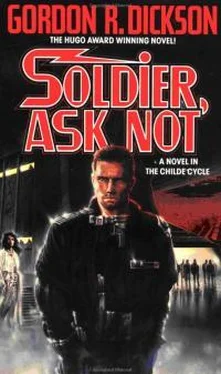
![Гордон Диксон - Некромант [Некромансер; Нет места человеку]](/books/4913/gordon-dikson-nekromant-nekromanser-net-mesta-che-thumb.webp)
